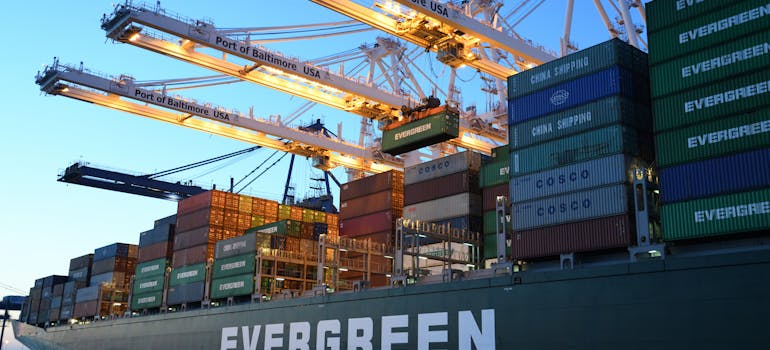How Freight Cost Is Determined
Let's TalkFiguring out freight costs can seem like a big puzzle, even when dealing with moving stuff across different states with Interstate Logistics. Whether you’re a business or just someone trying to send something big, knowing about these costs is super important. Freight cost is what you pay to get your goods from one place to another in a way that doesn’t break the bank. It’s a big deal in the shipping world because it affects everything about how things get moved around. We’re here to help make sense of it all. By explaining the bits and pieces that go into freight costs, we want to make this topic easier to understand and help you feel more at ease. This way, you can make smarter choices without feeling lost.
What Factors Influence Freight Cost?
When we talk about freight costs, several variables come into play.
- Distance: The further your goods need to travel, the higher the cost.
- Weight: Heavier shipments generally cost more to transport.
- Volume: The amount of space your shipment occupies can also impact the cost.
- Type of Goods: Special requirements for hazardous materials, perishables, or high-value items can increase costs.

How Does Distance Impact the Cost?
The journey your shipment takes has a big say in your freight cost. Longer distances mean higher costs because your goods are on the road, in the air, or at sea for more time. This means more fuel, labor, and resources are needed to get your items from A to B. But remember, working with a knowledgeable freight forwarder in Virginia can help you navigate these costs more effectively, leveraging their expertise to find the most cost-efficient routes.
Why Do Weight and Volume Matter in the Cost Calculation?
Here’s where things get interesting. The weight of your shipment and how much space it occupies (its volume) are crucial in figuring out costs. Carriers use a concept called ‘chargeable weight’ to determine whether the actual weight or the volume of the goods will dictate the price. This ensures that a large, lightweight package doesn’t cost the same to ship as a small, heavy one. It’s a balancing act that makes sure pricing is fair and reflects the effort required to move your shipment.

What Is the Role of the Type of Goods in Determining Freight Cost?
Hazardous materials, perishables, and high-value items often require special handling, which can increase the price. If your business involves shipping such items, partnering with a Virginia logistics company like ours that is experienced in dealing with unique goods can offer peace of mind and potentially lower costs through expert handling and efficient logistics solutions.
How Do Shipping Modes Influence Freight Cost?
Choosing how your goods are shipped—by air, sea, road, or rail—can greatly impact your costs. Air freight is typically the fastest but also the most expensive option. Sea freight, on the other hand, is more budget-friendly but takes longer. Road and rail fall somewhere in between, offering a balance of speed and cost. Each mode has pros and cons, depending on your needs and timeline.
What Are Fuel Surcharges and How Do They Affect Freight Cost?
Fuel prices are as unpredictable as the weather, and they directly impact freight costs. Most carriers include a fuel surcharge that can fluctuate with the price of oil. This means your freight costs can vary even after you’ve received an initial quote. Staying informed about these surcharges and planning accordingly can help you manage your budget more effectively.
How Do Market Conditions Affect Freight Cost?
The principles of supply and demand also apply in the logistics industry. When demand for shipping exceeds the available capacity, prices go up. Economic conditions, seasonal peaks, and global events can all influence these dynamics. For instance, the holiday season often sees a surge in demand for shipping, which can drive up costs. Keeping an eye on these trends and timing your shipments can help avoid premium rates.
Strategies for Minimizing Expenses
Reducing your freight costs doesn’t mean cutting corners. It’s about being smart and strategic. Preparing your freight for international shipping is one crucial step. Ensuring your goods are properly packed and documented can avoid delays and additional charges. Building a strong relationship with a freight forwarder can provide access to better rates and insider tips for efficient logistics planning.

Freight costs are a significant part of doing business, but they don’t have to be a burden. By understanding the factors that influence these costs and adopting a strategic approach to your logistics planning, you can keep expenses in check while ensuring your goods reach their destination safely and on time. Whether you’re working with a freight forwarder in Virginia, choosing the right shipping mode, or preparing your freight for international travel, every decision you make can help optimize your logistics operations and save money in the long run.
Mastering Freight Costs
Figuring out freight costs can be pretty straightforward once you know what affects it. From the distance your shipment travels, its weight and size, to the kind of items you’re sending and how you choose to send them—every bit counts. Remember, the goal isn’t just to cut costs but to make smart choices that match your needs. You can navigate the shipping world like a pro by keeping an eye on fuel surcharges and market trends and preparing your goods correctly. So, take this knowledge, use it to your advantage, and start optimizing your freight costs today. It’s all about making informed decisions to help your business or personal shipments move smoothly and affordably.
